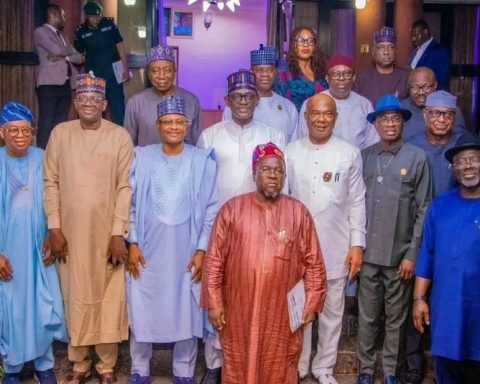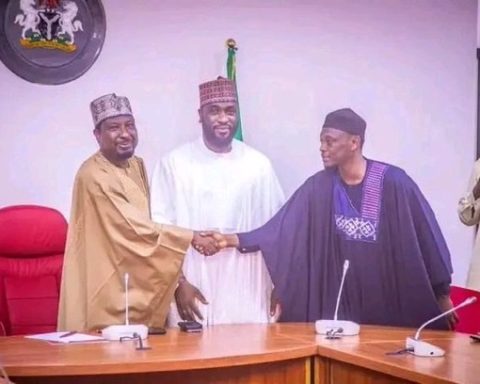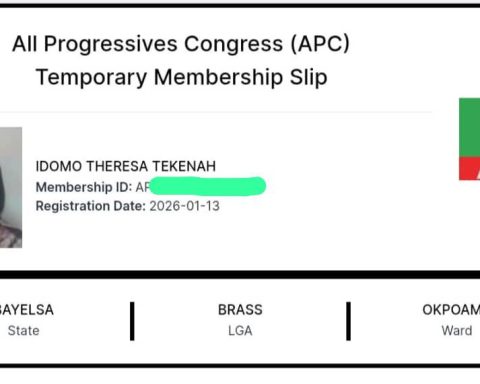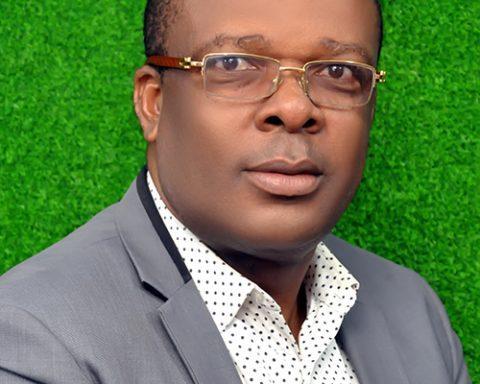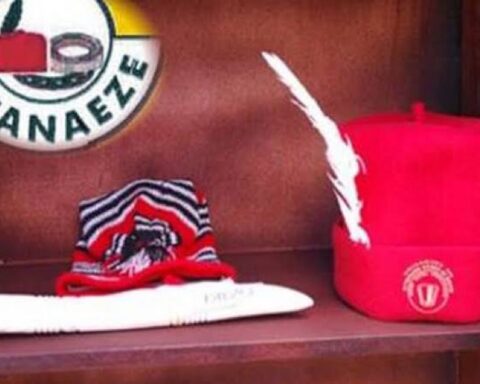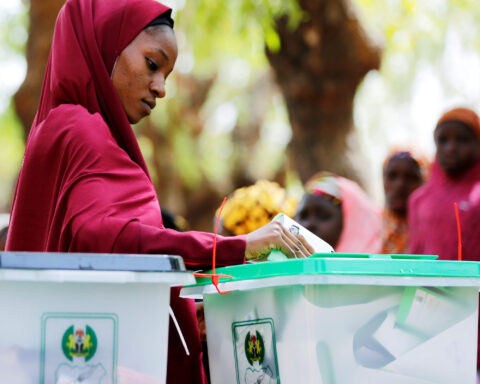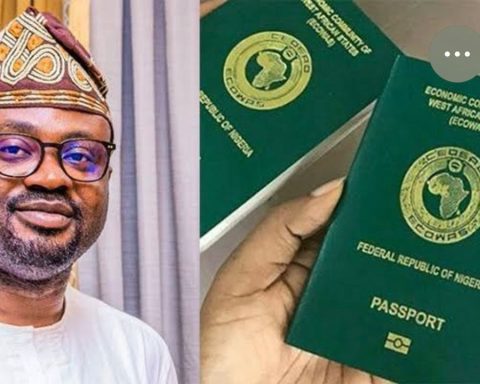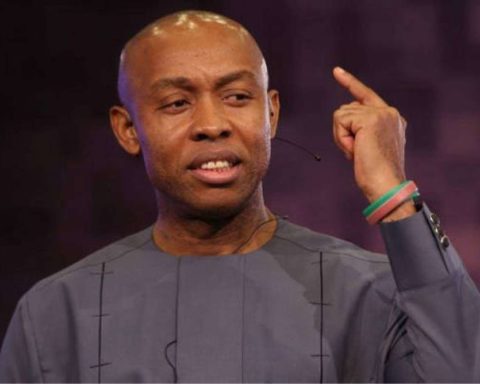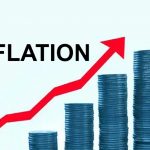As Nigeria battles escalating food insecurity, rising inflation, and deepening insecurity, 22 governors from the ruling All Progressives Congress (APC) have unanimously endorsed President Bola Ahmed Tinubu for re-election in 2027, sparking questions about governance quality and the widening gap between political endorsements and the daily realities of ordinary citizens.
The governors unanimously endorsed President Bola Ahmed Tinubu as the party’s candidate during the APC National Summit at the State House Banquet Hall in Abuja on May 22, 2025. They expressed strong confidence in Tinubu’s leadership, highlighting his administration’s achievements across key sectors. This event coincided with the second anniversary of Tinubu’s presidency.
Join our WhatsApp ChannelI did not understand the particular campaign promises or achievements the governors meant. Is it still related to citizens’ welfare? Or maybe they are talking about fuel subsidy removal?
The governors, including lawmakers, specifically noted that President Tinubu has been fulfilling his campaign promises to Nigerians, including economic reforms, security improvements, and social welfare initiatives, which have contributed to national stability and progress. The governors pledged their continued support to ensure the success of the President’s Renewed Hope Agenda and the delivery of development across their states.
Days before the national endorsement, the North-West zone of the APC had already passed a vote of confidence on President Tinubu, endorsing him as their sole preferred candidate for the 2027 presidential election.
The endorsement took place at a stakeholders’ meeting in Kaduna, where all the state governors of the zone, along with key party leaders and legislators, reaffirmed their loyalty to Tinubu and praised his progressive governance, especially noting improvements in security, infrastructure, and socio-economic development in the North-West region. The North-West APC also highlighted Tinubu’s commitment through projects like the North-West Development Commission and emphasised that there would be “no vacancy” in Aso Rock come 2027, signalling strong regional support for his re-election bid.
In all these endorsements, having noted their reasons, an ordinary Nigerian who has not fed for days ought to ask if there is another Nigeria aside from the one we are all living in with these politicians.
Gale of defections to the APC
The recent wave of defections to the ruling APC, including high-profile figures like Delta Governor Sheriff Oborevwori, has significantly reshaped Nigeria’s political landscape. In Kaduna State alone, several prominent opposition leaders, including Senator Danjuma Laah and several lawmakers from PDP, Labour Party, and NNPP, defected to the APC, further weakening opposition strongholds.
READ ALSO: Delta Gov. Oborevwori, Okowa Dump PDP For APC
Is this surge in defections also a sign of confidence in President Bola Tinubu’s leadership and his fulfilment of campaign promises, or is it more about politicians not wanting to be left out of the ruling party’s patronage and access to resources?
Is it a testament to Tinubu’s growing influence and reforms, as some APC governors suggest, or do they reflect a broader culture of political expediency where allegiance shifts to the party in power to maximise personal gain? The answer likely lies somewhere in between, highlighting the complex interplay of confidence, convenience, and careerism in Nigeria’s evolving political dynamics.
President Bola Tinubu has clearly stated, “A one-party system is not suitable for democracy. We are one party ruling and carrying on with the aspirations of Nigerians. You don’t expect people to remain in a sinking ship without a life jacket. I am happy with what we have accomplished and expecting more people to come, that’s the game.” He emphasised that Nigerians have the constitutional right to freely choose their political associations and assured that the country will not become a one-party state.
However, despite this assertion, it is already observed that Nigeria is increasingly becoming a de facto one-party system, given the massive defections from opposition parties to the ruling APC and the party’s growing dominance across the country, thereby weakening opposition voices and the narrowing of political competition, fuelling debates about the future of Nigeria’s multiparty democracy.
Quality of Governance and the Incumbent’s Chances of Re-Election
The recent unanimous endorsement of President Tinubu by all APC governors, lawmakers, and the defected politicians starkly illustrates how the quality of governance often means little to an incumbent’s chances of re-election. Despite less than two years into what many describe as a ‘disastrous’ presidency, the endorsement came amid glaring national challenges:
In 2025 alone, insecurity in Nigeria has continued to severely impact millions of lives, fuelling acute food insecurity and humanitarian crises. According to the Food and Agriculture Organisation (FAO) and the Cadre Harmonisé report, approximately 30.6 million Nigerians across 26 states and the Federal Capital Territory are projected to face acute food and nutrition insecurity between June and August 2025, driven largely by persistent violence and insecurity.
READ ALSO: North-west APC, Governors Endorse Tinubu’s 2027 Reelection Bid
Nigeria’s annual inflation rate remains critically high at 23.71% in April 2025, with food inflation the largest component, still elevated at 21.26% despite a slight moderation from previous months. This means Nigerians continue to face steep increases in cost of basic food items like maize, wheat, and yam.
The northeastern states of Borno, Adamawa, and Yobe are heavily affected by insurgency, accounting for about 3.7 million food-insecure people, while the northwest, plagued by banditry and kidnappings, accounts for 4.2 million, with numbers expected to rise during the lean season. Insecurity-related disruptions have worsened food availability and access, exacerbating malnutrition risks for vulnerable groups, including 5.4 million children and 800,000 pregnant or breastfeeding women.
Violence continues unabated in 2025, with armed conflicts, banditry, and communal clashes reported in states such as Zamfara, Sokoto, Katsina, Kaduna, Benue, Plateau, and Niger. These security challenges not only threaten lives but also cripple economic activities, deepen poverty, and undermine efforts to improve national development indicators. Persistently high inflation and energy price increases reported by the National Bureau of Statistics imply that fuel costs remain a significant burden on households and businesses.
Prevailing reports indicate deteriorating infrastructure and learning outcomes in public schools, exacerbated by strikes and lack of funding, while Nigeria’s industrial sector continues to shrink, with many factories closed due to economic pressures and infrastructure deficits, contributing to rising unemployment and a shrinking middle class.
Poor road conditions persist nationwide, hampering trade and mobility, although specific statistics are not included in the search results.
These figures and trends highlight the stark contrast between the administration’s endorsement by APC governors and the ongoing socio-economic difficulties faced by Nigerians, showing how governance quality is often sidelined in political calculations.
Sadly, the challenge lies in the weak systems of accountability and governance that allow leaders to evade responsibility. Studies and analyses show that Nigeria’s democratic system suffers from a significant deficit in leadership accountability, which undermines good governance and public trust.
Human Rights, World bodies’ reactions towards the current government
International and local bodies have raised serious concerns about Nigeria’s governance crisis. In 2025, Human Rights Watch condemned government violence against protesters over economic hardship. The International Organisation for Migration highlighted a severe humanitarian crisis driven by insecurity and governance failures. ActionAid cited the World Bank’s forecast of rising poverty, blaming poor governance and corruption. The IMF urged stronger economic policies amid global uncertainties.
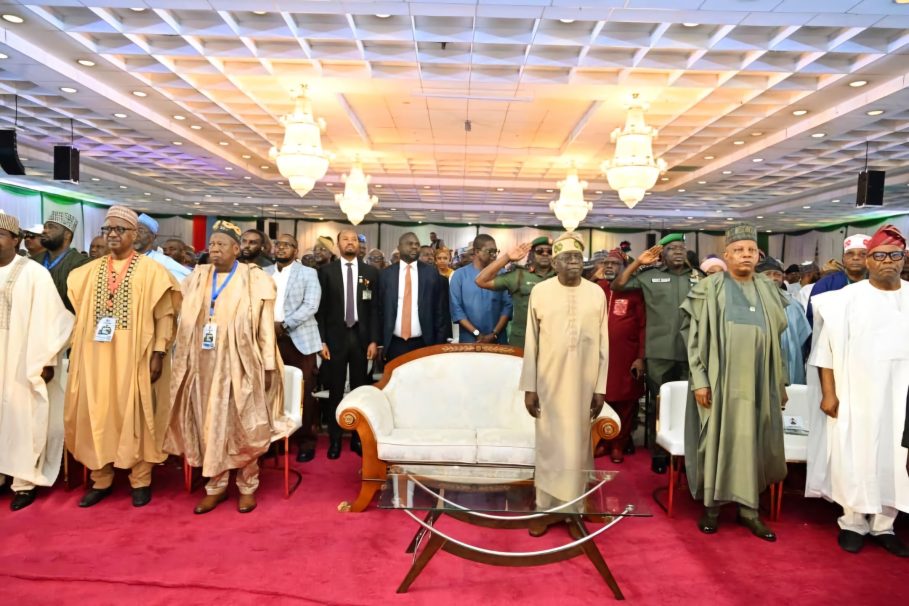
Recently, inefficiencies at the Nigerian National Petroleum Corporation Limited (NNPCL) have raised alarms about the oil sector’s future. These warnings emphasise that without urgent reforms, Nigeria faces worsening poverty, insecurity, and economic instability, threatening national progress and global confidence.
Overcoming ethno-religious divides to demand better governance
To effectively challenge bad governance regardless of the incumbent, Nigerians must fundamentally change how they relate to religion and ethnicity, which have long been exploited to divide and manipulate the electorate. Ethno-religious identities heavily influence Nigerian politics, with politicians often mobilising support along these lines rather than on merit or policy. This politicisation fosters division, weakens national cohesion, and undermines good governance by prioritising sectional interests over the common good.
To overcome this, Nigerians need to embrace a shared national identity that transcends ethnic and religious differences. Promoting interfaith dialogue, religious tolerance, and ethnic inclusiveness is essential to reduce polarisation and dangerous speech that fuels violence and distrust.
Citizens must demand leaders based on competence and accountability, not ethnic or religious loyalty. A nationwide moral and ethical revival focusing on honesty, transparency, and justice can help shift political culture away from parochialism towards unity and good governance. Only by prioritising national interest over sectarian divides can Nigerians hold leaders accountable and foster sustainable development.
Dr Mbamalu, a Jefferson Journalism Fellow (Hawaii, USA), member of the Nigerian Guild of Editors and Communications Consultant, is also the publisher of Prime Business Africa
Dr. Marcel Mbamalu is a distinguished communication scholar, journalist, and entrepreneur with three decades of experience in the media industry. He holds a Ph.D. in Mass Communication from the University of Nigeria, Nsukka, and serves as the publisher of Prime Business Africa, a renowned multimedia news platform catering to Nigeria and Africa's socio-economic needs.
Dr. Mbamalu's journalism career spans over two decades, during which he honed his skills at The Guardian Newspaper, rising to the position of senior editor. Notably, between 2018 and 2023, he collaborated with the World Health Organization (WHO) in Northeast Nigeria, training senior journalists on conflict reporting and health journalism.
Dr. Mbamalu's expertise has earned him international recognition. He was the sole African representative at the 2023 Jefferson Fellowship program, participating in a study tour of the United States and Asia (Japan and Hong Kong) on inclusion, income gaps, and migration issues.
In 2020, he was part of a global media team that covered the United States presidential election.
Dr. Mbamalu has attended prestigious media trainings, including the Bloomberg Financial Journalism Training and the Reuters/AfDB Training on "Effective Coverage of Infrastructural Development in Africa."
As a columnist for The Punch Newspaper, with insightful articles published in other prominent Nigerian dailies, including ThisDay, Leadership, The Sun, and The Guardian, Dr. Mbamalu regularly provides in-depth analysis on socio-political and economic issues.




